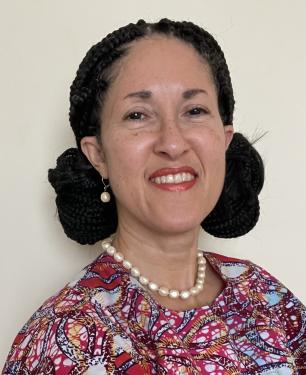 Dear Friends of WCW:
Dear Friends of WCW:
Happy New Year! I hope that your winter break was restful and rejuvenating. With a wrap on 2023, we leap headlong into 2024 with a sense of renewal and openness to what lies ahead. Our 2023 Research & Action Report highlighted some of our accomplishments from the previous year, as well as some of the new projects we are just starting. From our work to evaluate Planned Parenthood’s new sex ed curriculum to a new study of what home-based child care providers need to survive, we are excited about what is on the horizon—including a project that’s particularly close to my heart.
At the end of this week, I’ll be traveling to Liberia to train student intern data collectors for the Higher Education for Conservation Activity (HECA), a program funded by the United States Agency for International Development (USAID). My role on this project is Gender Equality and Social Inclusion Lead, and my work ensures that more women, youth, people with disabilities, and people from rural, forest-dependent communities can participate in higher education programs related to forestry, biodiversity, and conservation. Liberia contains the largest remnant of the disappearing Upper Guinean Rainforest, and we are trying to train more people to take care of it, for the benefit of all. It is important that women's unique experiences, perspectives, and ideas inform this effort, along with those of others who have been sidelined in the past. To be involved with an effort to stem climate change is new for WCW, and I'm excited that I can represent both WCW and the College on this larger team effort. Stay tuned for a travelogue on Women Change Worlds in February!
Like many of you, I am tuned in to the world around us, and watching closely what 2024 might bring. For one thing, this is a presidential election year, which could affect us profoundly by shaping the conditions of our work, including government funding streams. Secondly, there are still multiple wars going on in the world, and how we show up for peace and justice, whether individually or institutionally, as a women-led, social justice, research and action organization, will be important. What's more, climate change is likely to continue to affect the weather and a whole lot more, and how we weigh in on this consequential topic will be an area of emerging importance. Last but not least, artificial intelligence (AI) is the new kid on the block, and we are just beginning to understand what new issues it will raise, affecting gender equality, social justice, and human wellbeing as it evolves in ways we can scarcely imagine today. I’m sure you can think of many other things to add to this list. It is a time of converging grand challenges, but that has never scared WCW! We are on it!
As we begin this year, I am thankful for all of you and all you do to support WCW. However grand the challenges may be, it is always the small, local, everyday actions that give solutions life and make change sustainable. And it is also our interventions on the discourses of society—the ways in which we make sure WCW's research and action is heard and considered by wider audiences—that have the potential to change hearts and minds and structures of power in a positive, humane direction. Your material support of our work makes it sustainable and increases its power to influence change. In the famous words of an African philosopher, “I am because we are, and because we are, I am.” Thank you!
Happy 2024,
Layli
Layli Maparyan, Ph.D., is the Katherine Stone Kaufmann ’67 Executive Director of the Wellesley Centers for Women at Wellesley College.



 As a developmental psychologist who works from an
As a developmental psychologist who works from an 
